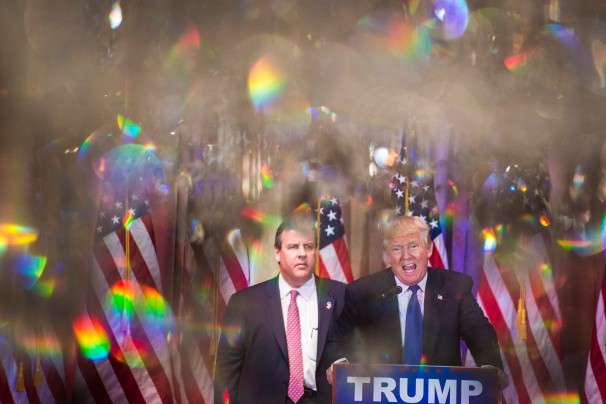The Volokh Conspiracy
Mostly law professors | Sometimes contrarian | Often libertarian | Always independent
So far, Trump wins open primaries and Cruz wins closed … and the calendar is starting to change toward more closed primaries

Following the South Carolina primary, an interesting article by Michael Harrington went around Facebook that speculated that Donald Trump's victory in the South Carolina primary was attributable to Democrats voting in the Republican (open) primary. One of the good things about Harrington's article is that he put out a testable hypothesis - that turnout in the Democratic primary a few days later would be less than 390,000. In fact, it was 367,000. Harrington concludes that had South Carolina had a closed primary, Ted Cruz would have won the primary there. I don't know him and the author seems to be anti-Trump based on other things he has written - but the fact that his prediction was borne out adds some independent verification to his thesis. So that got me to thinking.
https://www.washingtonpost.com/video/politics/heres-who-won-where-on-super-tuesday/2016/03/02/9bae5654-e034-11e5-8c00-8aa03741dced_video.html
If true, why does this matter? Because so far the primary calendar has been heavily tilted toward open primaries. But there have been four closed elections: the Iowa caucus, the Nevada caucus, and Super Tuesday's Oklahoma primary and Alaska caucus. Ted Cruz won three of those four closed elections.
So here's where it potentially gets interesting. Although the media are looking forward to March 15, this Saturday (March 5) there are four Republican primaries/caucuses: Kansas, Kentucky, Louisiana and Maine. All are closed.
Then, once the winner-takes-all states begin, a large number of those are closed primaries and caucuses as well (including Florida, for what it's worth).
That suggests at least two things.
First, the fact that South Carolina and most of the SEC primaries were open primaries may very well explain why those states did not turn out to be Ted Cruz's firewall or launch states as he had predicted. Oklahoma did perform as expected, being a fairly comfortable win for Cruz. The timeless Pauline Kael quote that has been back in circulation lately may not necessarily be incorrect among actual Republicans.
Second, the four closed primaries and caucuses this Saturday could be very interesting to watch, particularly to see whether Trump can maintain his momentum in closed primary states where he will have to appeal to the traditional Republican base. I haven't gone through the remainder of the states to calculate in detail how many delegates will be selected through this series of closed primaries and whether those are enough to win. Trump also might start winning closed primaries and caucuses. But this has been his Achilles heel so far.
As I read the headlines today, I have seen no discussion of this bimodal phenomenon that has held so far. The Wall Street Journal's front page, for example, doesn't mention it. This suggests that although the media are focusing on Florida and Ohio, there is another story here that is being overlooked as to whether Trump can consistently establish himself with the traditional Republican base.
As an aside, it seems sort of peculiar that open primaries play such a disproportionately large role at the outset of the Republican nomination process. I understand the historical reasons for why Southern states have open primaries and why they are at the beginning of the campaign process. And I'm not saying that it is necessarily wrong to have so many open primaries at the beginning of the process. But it just seems peculiar to have so many open primaries front-end loaded and the closed ones disproportionately later in the process, given the importance of the early primaries in culling the field. I'm not sure whether the Republican National Committee would have intended that had it thought of it.
(Disclosure: I am not affiliated with any particular candidate and have talked to several campaigns about issues in my area of policy expertise.)


Show Comments (0)